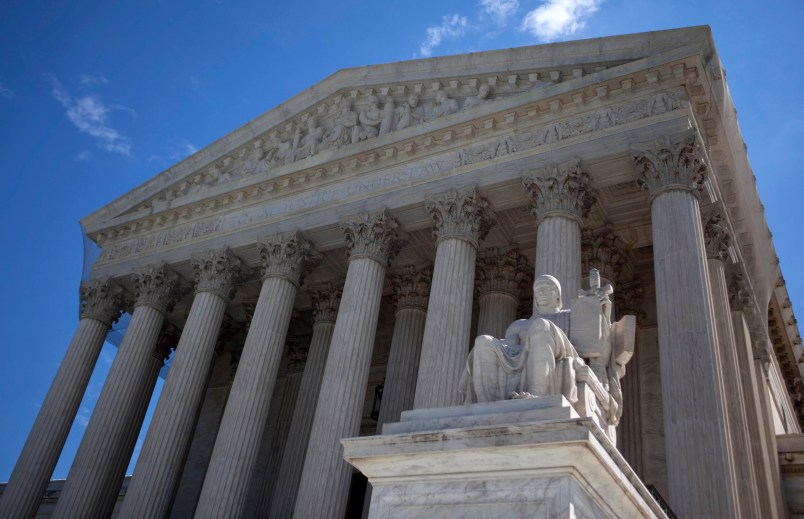The Supreme Court announced on Friday it will hear a lawsuit that seeks to cripple Obamacare by invalidating federal subsidies for millions of Americans.
In a surprising move, the justices agreed to have the final word on a challenge to the legality of Obamacare premium tax credits in 36 states which declined to build their own state-run exchanges and handed some or all of the task over to the federal government.
The decision is troubling news for the White House, which wanted to resolve the case in the lower courts so the Supreme Court wouldn’t have to weigh in.
The Supreme Court agreed to hear the case King v. Burwell after the challengers lost before a trial court judge and the 4th Circuit Court of Appeals, which upheld the subsidies. After the 4th Circuit ruling, the plaintiffs recognized they could only win the case at the Supreme Court, and so they appealed directly to the justices.
The plaintiffs allege that the plain text of the Affordable Care Act confines the subsidies to “an Exchange established by the State” but not the federal HealthCare.gov exchange which serves residents of states that didn’t build one.
The Obama administration counters that the statute as a whole makes clear the subsidies were intended for Americans in every state.
A three-judge panel on the D.C. Circuit ruled against the subsidies, but the full court vacated that ruling and plans to re-hear the case next month. The justices’ decision on Friday means the outcome in the D.C. Circuit may have little impact. Some expected the Supreme Court to wait until the D.C. Circuit had decided the case in order to determine whether there was a circuit court disagreement they needed to resolve.
The challenge was thought up by Cato health policy researcher Michael Cannon and Case Western Reserve University law professor Jonathan Adler.
King is the most dangerous legal attack on Obamacare since the lawsuit against the individual mandate. That case reached the Supreme Court in 2012 and Obamacare emerged largely in tact, surviving by a fragile 5-4 margin after Chief Justice John Roberts sided with the liberal wing to uphold most of the law.
Four justices were required to grant review of the King case. There were no recorded dissents.
Nicholas Bagley, a professor at the University of Michigan Law School, wrote that the Supreme Court’s move “substantially increases the odds that the government will lose this case.”
“No, what’s troubling is that four justices apparently think—or at least are inclined to think—that King was wrongly decided. As I’ve said before, there’s no other reason to take King,” Bagley wrote. “And there are at least four such justices. If those four adhere to their views—and their views are tentative at this stage, but by no means ill-informed—the challengers just need one more vote to win. In all likelihood, that means that either Chief Justice Roberts or Justice Kennedy will again hold the key vote.”
This is the outcome that conservative legal advocates have been lobbying for. Once the Obama administration asked the full D.C. Circuit to take up the case, they recognized that their odds of victory could diminish, in part because the court that would decide it featured an 8-5 majority of Democratic-appointed judges. In the pages of the Washington Post and the Wall Street Journal, conservative lawyers preemptively sought to discredit a D.C. Circuit move to uphold the Obamacare subsidies, suggesting it would be politically-motivated.







And once again, the right wing shows why we can’t have nice things.
Adding, am I the only one that thinks the court is now going to be brazenly emboldened to resume ratfucking the country because of the election on Tuesday?
“Our enemies are innovative and resourceful, and so are we. They never stop thinking about new ways to harm our country and our people, and neither do we.”
_________George Dumbya’ Bush aka “Shrub”
And his Republican and Con legacy…continuuuuuuuuuuues’
If they rule against the subsidies that will strike a blow to Obama’s signature law, rendering his Presidency, sadly, a failure.
Nope, the economy is improving so his presidency is not a failure.